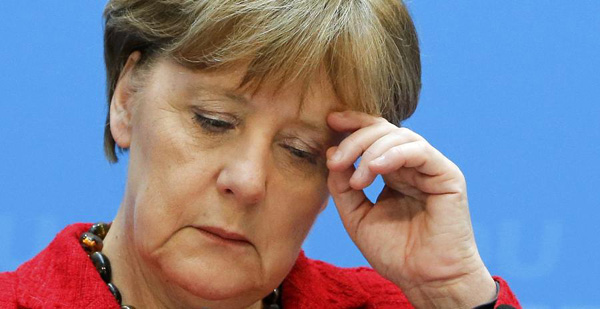BERLIN - German Chancellor Angela Merkel said on Monday that the results of state elections in Germany on Sunday "make her party think."
|
 |
|
German Chancellor and Christian Democratic Union (CDU) leader Angela Merkel attends a news conference at the CDU party headquarters in Berlin, Germany March 14, 2016.?[Photo/Agencies] |
Eligible German voters cast their ballots on Sunday in the southwestern states of Baden-Wuerttemberg and Rhineland-Palatinate as well as eastern Saxony-Anhalt to elect three new regional parliaments.
Anti-migration party, the Alternative for Germany (AfD), recorded remarkable gains in the elections and was able to break into all three state parliaments. Merkel's Christian Democratic Union (CDU) took a beating and lost voter support in all three states.
Reviewing the vote results together with her party's top candidates, Merkel acknowledged that it was a "difficult day for the CDU."
According to Merkel, insecurity among the German population and the poll results of the AfD had increased significantly after the Cologne assaults on New Year's Eve this year, adding the CDU would continue discussions with the upstart party in a bid to find suggestions for dealing with the current refugee issue.
The "Super Sunday" vote was the biggest in Germany since a record number of refugees came to the country, and was largely billed as a mood test for Merkel's open door policy towards refugees.
The surge of the AfD in the elections was widely seen as the result of a "protest vote." Many AfD supporters said they were not being taken seriously by the main parties and believed the AfD understood them best on the issue of refugees.
However, the majority of people questioned also suspected that the AfD was a protest party which was good at identifying problems but wouldn't provide viable solutions over the long term.
